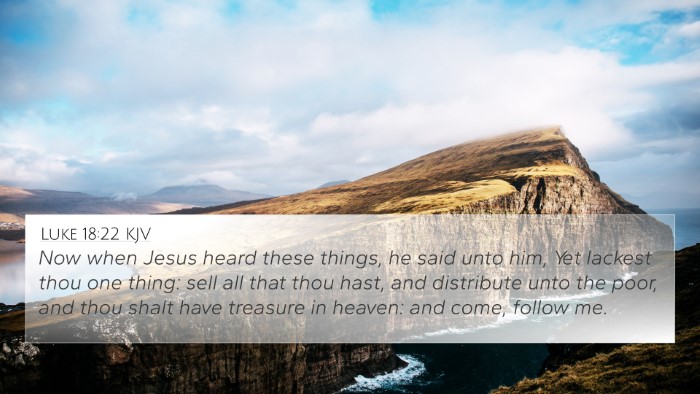Understanding Luke 5:27
Luke 5:27 states, "After this, he went out and saw a tax collector named Levi, sitting at the tax booth; and he said to him, 'Follow me.' This passage marks a significant moment in the ministry of Jesus where He calls Levi, also known as Matthew, to be one of His disciples. The calling of a tax collector reflects Jesus’ inclusive approach and His focus on reaching out to those marginalized by society.
Contextual Background
This verse is part of a larger narrative in which Jesus demonstrates His mission to save sinners. In the context of first-century Judea, tax collectors were often despised, regarded as traitors and corrupt individuals due to their collaboration with the Roman authorities. Levi's immediate and obedient response to Jesus’ call exemplifies the transformative power of Jesus' message.
Commentary Insights
- Matthew Henry: Henry emphasizes that Jesus calls those whom society overlooks. Levi's occupation symbolizes sin and moral decay, yet Jesus sees beyond the external and addresses the heart.
- Albert Barnes: Barnes points out that the call of Levi highlights the grace of God towards sinners. It illustrates that no one is beyond reach of salvation, and it sets a precedent for evangelistic efforts among all societal classes.
- Adam Clarke: Clarke elaborates on Levi's swift response, indicating that this act of faith wasn't merely about leaving his job but about embracing a new life and purpose in following Christ.
Thematic Connections
The themes of calling, redemption, and transformation resonate throughout the Bible, and Luke 5:27 serves as a pivotal link to other scriptural narratives. The following Bible verses relate closely to the themes presented:
- Mark 2:14: A parallel account of Jesus calling Levi, emphasizing the significance of His actions.
- Matthew 9:9: Another viewpoint on the same story, illustrating the consistency of the message across Gospels.
- Luke 19:10: Jesus states His mission to seek and save the lost, emphasizing the purpose behind His calls to discipleship.
- 1 Timothy 1:15: Paul reflects on the nature of Jesus’ mission, noting that Christ came to save sinners.
- Romans 5:8: This verse highlights God's love, demonstrating that He reached out to us while we were still sinners, much like Levi.
- John 6:44: The appeal of Jesus to sinners translates to the divine initiative in calling individuals to Himself.
- Matthew 11:28: Jesus invites the weary to come to Him, reinforcing the message of grace and acceptance found in His call.
Cross-Referencing Biblical Texts
This verse invites an exploration of several cross-references that deepen our understanding of its significance:
- Luke 15:1-2: This passage describes Jesus eating with tax collectors and sinners, validating His compassionate outreach.
- Luke 7:34: Accusations against Jesus for being a friend of sinners reaffirm the inclusive nature of His ministry.
- Acts 2:38: Peter’s call to repentance after Christ’s resurrection signifies the continuing theme of calling and transformation initiated by Jesus.
Conclusion
In summary, Luke 5:27 serves as a powerful illustration of Jesus' mission on Earth. It invites believers to recognize the importance of inclusivity in sharing the gospel. The use of cross-references enriches our understanding, emphasizing that Jesus calls individuals from all walks of life to follow Him and be transformed. By studying these connections, one can appreciate the depth of the gospel message and the overarching theme of redemption woven throughout scripture.
Further Study
For those interested in exploring the connections between Bible verses further, utilizing a Bible concordance or a Bible cross-reference guide can be invaluable tools. Engaging in cross-reference Bible study methods will enhance your understanding of how different passages illuminate each other, revealing the profound unity and purpose within the biblical narrative.













